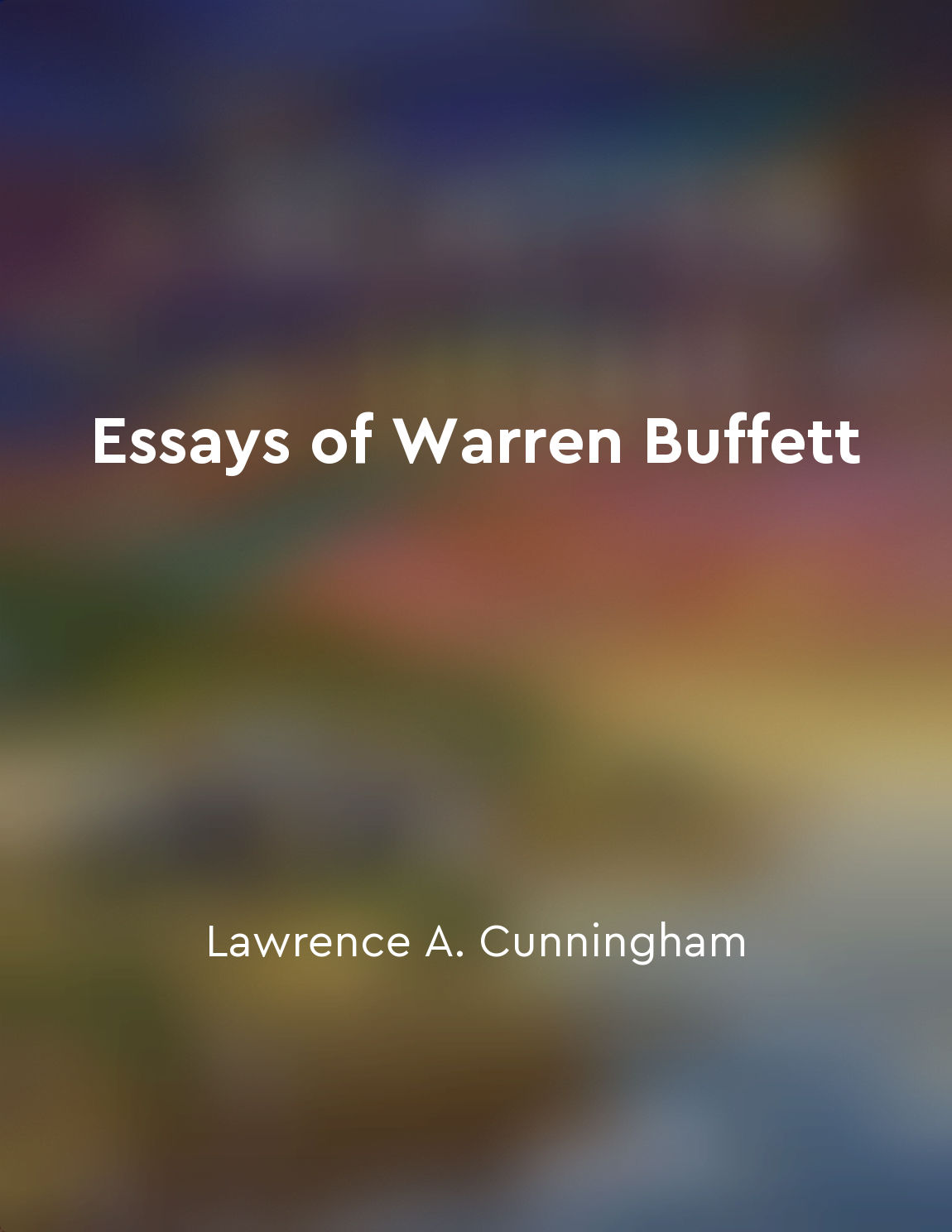Moral character as a determinant of economic success from "summary" of The Protestant Ethic and the Spirit of Capitalism by Max Weber
Max Weber argues that moral character plays a significant role in determining economic success. According to Weber, individuals who possess certain moral virtues are more likely to achieve success in the economic realm compared to those who lack such virtues. This connection between moral character and economic success can be seen in the way in which certain values and behaviors are conducive to wealth accumulation and financial prosperity. Weber discusses how the Protestant work ethic, which emphasizes hard work, discipline, and frugality, has contributed to the development of capitalism in Western societies. He suggests that individuals who adhere to this ethic are more likely to succeed in the world of business and finance because their moral values align with the requirements of a capitalist economy. By working diligently, saving money, and investing wisely, individuals can increase their wealth and achieve economic success. Weber also explores the idea that certain moral virtues, such as honesty, integrity, and reliability, are essential for success in the business world. Individuals who exhibit these virtues are more likely to gain the trust and respect of others, which can lead to opportunities for advancement and growth. On the other hand, those who lack such virtues may struggle to build successful business relationships and may face obstacles in their quest for economic success. Furthermore, Weber suggests that moral character can influence an individual's approach to risk-taking and decision-making in the economic realm. Individuals who possess moral virtues such as prudence and self-control are more likely to make sound financial decisions and avoid unnecessary risks. This can ultimately lead to greater success in the long run, as individuals who are able to manage their finances responsibly are more likely to achieve financial stability and security.- Weber's analysis highlights the importance of moral character in determining economic success. By cultivating virtues such as hard work, honesty, and prudence, individuals can increase their chances of achieving wealth and prosperity in the modern capitalist economy. Through his exploration of the connection between moral character and economic success, Weber sheds light on the ways in which personal values and behaviors can shape one's financial outcomes.
Similar Posts

Cultivate rationality to avoid emotional investments
Warren Buffett emphasizes the importance of making investment decisions based on rationality rather than emotions. He believes ...
Social responsibility is a core value for conscious companies
Social responsibility is a fundamental principle that underpins the ethos of conscious companies. These organizations recognize...
The journey to wealth includes emotional and psychological elements
The path to building wealth isn't just about crunching numbers and making smart investment decisions. It's about understanding ...

Regulators turned a blind eye to warning signs
The regulators charged with overseeing the mortgage market had one job: to prevent disaster. They were supposed to keep an eye ...
Avoid getrich-quick schemes
Many people are tempted by the promise of quick wealth through schemes that seem too good to be true. They are enticed by the i...

Saving money is more important than earning money
The idea that saving money is more important than earning money may seem counterintuitive at first. After all, we are often tol...
Our upbringing shapes our money mindset
As we journey through life, our relationship with money is significantly influenced by our upbringing. The environment in which...

He emphasizes the importance of continuous learning and improvement
Warren Buffett believes that continuous learning and improvement are crucial for success. He sees the value in constantly seeki...
Be mindful of your actions and their consequences
One must always be aware of their actions and the outcomes they may bring. Every action we take has a consequence, whether good...

